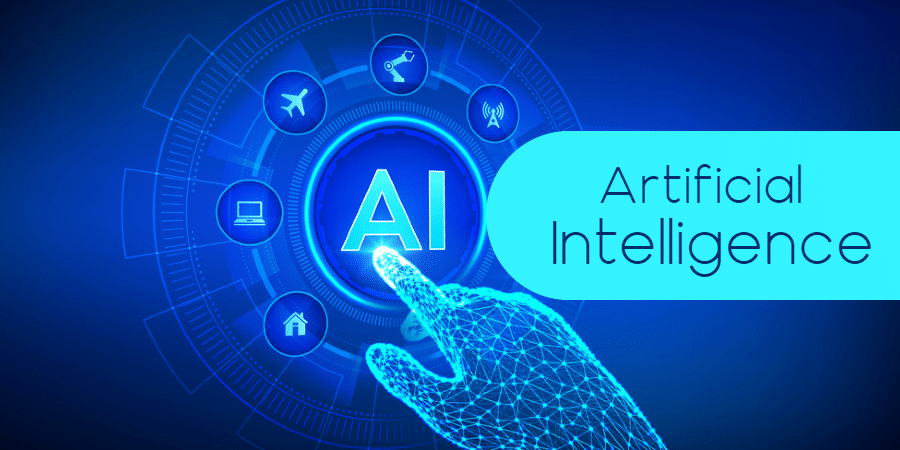Artificial intelligence (AI) is no longer a futuristic concept. It is already being utilized in various industries to improve efficiency, increase productivity, and enhance customer experience. Artificial Intelligence (AI) has emerged as one of the most transformative technologies of the modern era, with applications in a wide range of industries and domains. AI is rapidly evolving, with advancements in machine learning, deep learning, natural language processing, and computer vision. In this article, we will provide a comprehensive overview of AI, its history and challenges. We will also discuss the benefits of AI and how it can be incorporated into your business strategy. Additionally, we will discuss the ethical and societal implications of AI, such as job displacement, privacy, and bias. Overall, this article aims to provide readers with a comprehensive understanding of AI and its impact on society, now and in the future.

As a business consulting firm, Eureka BI believes that AI can be a game-changer for businesses of all sizes.
What is AI?
AI refers to the ability of machines to perform tasks that would typically require human intelligence, such as learning, problem-solving, and decision-making. It is the simulation of human intelligence in machines that are programmed to think and learn like humans. It involves the use of algorithms, statistical models, and big data to create intelligent systems that can perform tasks that typically require human intelligence, such as perception, reasoning, learning, and decision-making.
How did AI begin?
The history of AI can be traced back to ancient times, with stories of mythical machines capable of performing human-like tasks. However, the modern era of AI began in the mid-20th century with the development of electronic computers.
In 1950, British mathematician and computer scientist Alan Turing proposed the concept of a machine that could think, known as the Turing test. The test involved a human judge communicating with a machine and a human, and trying to distinguish which was the machine and which was the human. This test became a benchmark for AI development.
In the 1950s and 1960s, researchers developed a range of AI techniques, including logic-based systems and rule-based systems, which could reason and make decisions based on predefined rules. However, these early AI systems were limited in their capabilities and could not adapt to new situations or learn from experience.
 In the 1980s and 1990s, researchers began developing machine learning algorithms that could learn from data and improve their performance over time. This led to the development of neural networks, which mimic the structure and function of the human brain, and deep learning, which involves training neural networks with large amounts of data.
In the 1980s and 1990s, researchers began developing machine learning algorithms that could learn from data and improve their performance over time. This led to the development of neural networks, which mimic the structure and function of the human brain, and deep learning, which involves training neural networks with large amounts of data.
In recent years, AI has made significant advancements in areas such as natural language processing, computer vision, and robotics. Today, AI is used in a wide range of applications, from virtual assistants and chatbots to self-driving cars and medical diagnosis.
As AI continues to evolve, researchers and policymakers are grappling with the ethical and societal implications of this technology, such as job displacement, privacy, and bias. The history of AI has shown that this technology has the potential to transform society, but also requires careful consideration and responsible development.
READ ALSO: E-training
Benefits of AI in Business
- Improved Efficiency: AI can automate repetitive tasks and streamline business processes, thereby reducing errors and improving efficiency. For instance, chatbots can be used to handle customer inquiries, freeing up human resources to focus on more complex tasks.
- Enhanced Customer Experience: AI can help businesses understand customer behavior and preferences through data analysis. This information can be used to personalize customer interactions and improve the overall customer experience.
- Better Decision Making: AI can analyze large amounts of data in real time, enabling businesses to make more informed decisions. For example, AI-powered predictive analytics can be used to forecast sales, identify market trends, and optimize pricing strategies.
- Increased Productivity: AI can automate tasks that require a significant amount of time and resources, freeing up employees to focus on higher-value tasks. This can increase productivity and ultimately lead to business growth.
- Cost Reduction: AI can help businesses reduce costs by automating processes and improving efficiency. For instance, automated inventory management can reduce the cost of excess inventory and minimize the risk of stock- outs.

To incorporate AI into your business strategy, it is essential to start with a clear understanding of your business needs and objectives. Here are some steps to follow:
- Identify Use Cases: Identify areas where AI can add value to your business. This could be in areas such as customer service, marketing, sales, or operations.
- Assess Data Availability: Assess the availability and quality of your data. AI requires large amounts of data to be effective, so it is essential to ensure that your data is accurate, relevant, and accessible.
- Select the Right Tools: Choose the right AI tools and technologies that align with your business needs and goals. This could include chatbots, predictive analytics, machine learning, or natural language processing.
- Hire Experts: AI is a complex field, and it is essential to have experts on your team who can develop and implement AI solutions. Consider hiring data scientists or partnering with an AI consulting firm.
- Monitor and Evaluate: Continuously monitor and evaluate the performance of your AI solutions. This will help you identify areas for improvement and make necessary adjustments.
In summary, AI has the potential to revolutionize the way businesses operate, but it requires careful planning and implementation. At Eureka BI, we believe that businesses that embrace AI will have a competitive advantage in the long run. If you are interested in incorporating AI into your business strategy, contact us today to learn more about how we can help you leverage the power of AI to drive business growth and success.







